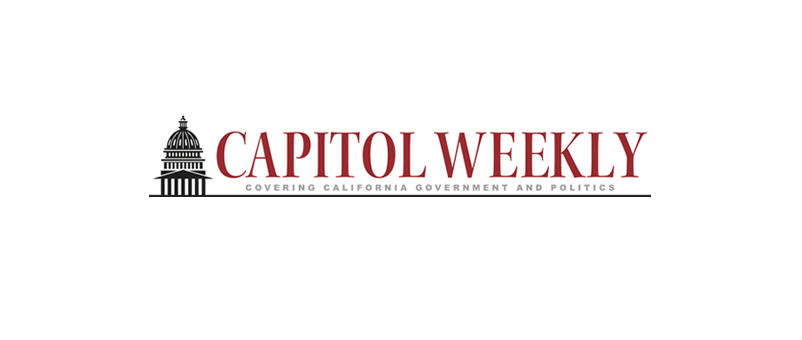By Matthew Burke
Capitol Weekly
July 10, 2023
OPINION – When I was 10 years old, I came home to a surprise in the middle of my living room—my mom had brought home an 8-week-old Golden Retriever puppy we named Abby. Due to bone cancer, we only had Abby in our lives for six years; but during those six years, the daily care and eventually the cancer treatment cemented in my mind what I was going to do—I was going to be a veterinarian. I knew this would be tough and expensive, but I worked hard and was accepted into UC Davis’s world-renowned Veterinary School in 2021.
My first year and a half of Vet School was difficult both mentally and financially, but manageable. However, toward the end of my second year I was blindsided by a completely unexpected diagnosis—Type 1 Diabetes (T1D). I was lucky in the sense that my care team and I caught it quickly, and I never needed to be hospitalized; however, the diagnosis of what is colloquially called “juvenile diabetes” at the age of 24 made me feel like the floor had dropped out from under my feet and the questions began filling my head. How is this going to affect my day-to-day life? What about my career? What can I eat? And most daunting, how much is this going to cost me?
My girlfriend’s mother also has T1D, and during the years of our relationship I’ve heard the horror stories of their struggles to afford Humalog, even rationing at times. Being a full-time student with a part time job, my chest felt tight—how am I going to survive this? I’ll need insulin for the rest of my life, but I also need to pay for the rest of vet school.
I’m still in the early stages of figuring out how to manage my disease, but one thing is clear: the high cost of prescription medications needs to be addressed. Right now, my copay at the pharmacy counter is $60+ for an insulin that only costs $2-$4 to make. Across the nation, individuals living with chronic conditions continue to face this daunting reality, often having to decide between managing their health or paying their bills. It is a disheartening reality that our health is sometimes determined by our ability to afford life-sustaining treatments.
For those of us living with T1D, the cost of insulin alone can be astronomical, particularly when coupled with the need for other essential medications and supplies.
While trying to figure out why a $2 medication is costing me $60-plus, I started reading article after article about the introduction of Pharmacy Benefit Managers (PBMs) and how these intermediaries between pharmaceutical companies, pharmacies, and insurers were initially intended to streamline the process and lower costs. However, over time PBMs have become entangled in a complex web of hazy practices that benefit their profit margins while leaving patients in the dark. We cannot continue bearing the burden of these costs any longer.
It is time for a change and Senate Bill 873, introduced by Senator Steven Bradford, offers a glimmer of hope for Californians living with chronic conditions like me. This bill aims to reform the prescription drug rebate system by ensuring 90% of negotiated rebates for medications are passed along to patients at the pharmacy counter. This will significantly lower out-of-pocket costs and alleviate the burdens faced by countless individuals living with chronic or rare conditions. How do we know? Other states, like Arkansas, Indiana, and West Virginia, have already passed similar legislation. These states have introduced various bills targeting PBMs to enforce transparency, foster fair pricing, and protect patients from excessive costs. Federal lawmakers have also acknowledged the pressing need for reform, introducing several bills aimed at holding PBMs accountable and advocating for greater transparency.
For those of us living with T1D, the cost of insulin alone can be astronomical, particularly when coupled with the need for other essential medications and supplies. Imagine the relief of being able to afford the life-saving treatments we require without sacrificing other basic necessities. Reigning in PBMs has the potential to empower patients, improve our adherence to medications, and ultimately improve overall health outcomes.
By enacting prescription drug rebate reform in California, SB 873 not only addresses the economic hardships faced by patients but also promotes a sense of security and peace of mind. When patients can focus on managing their health rather than worrying about how to afford their medications, we can experience a greater sense of stability and hope for the future.
I shouldn’t have to choose between my education and future and purchasing a prescription that I need to survive. We must stand together and demand change for the sake of patients across California and the entire nation.
Matthew Burke is a recently diagnosed type 1 diabetic living in Davis, California
